- Home
- Matthew Costello
Vacation Page 4
Vacation Read online
Page 4
But he’d thought of his dad and his rat-fighting when he moved to Staten Island with Christie and the two then toddlers.
Every crack sealed.
Doors reinforced.
Motion detector lights and alarms. Nothing expensive, but all good, reliable stuff.
Backup generator. Everyone had one these days.
Double locks everywhere. Metal panels that could be closed tight over the first-floor windows at night.
And weapons?
There were the weapons under lock and key that Christie knew about. Then there were the weapons she didn’t know about.
Jack had thought through a variety of scenarios, and safely secreted around the house other supplies of ammo and guns.
Not unlike the rats and their caches.
7
Preparations
Jack unlocked the trunk of the Ford Explorer.
It was five years old, and he maintained it himself and had as much confidence in it as he would in something brand new. Maybe more.
He’d done all the modifications—expensive and time-consuming—himself. The standard safety glass had all been replaced with reinforced shock-absorbent windshields and side windows, the same glass they once used in the armored cars of the well-heeled in São Paulo.
São Paulo? Gone years ago.
A layer of sheet metal covered all the vehicle’s side panels and undercarriage. The hood got a double layer of the same steel. The SUV would be better than a Humvee in an accident.
Or an attack.
Tires were a problem. Even the best tires could be ripped and gouged and turned into a useless piece of spinning rubber.
But the latest steel-belted battle tires used on the NYPD’s patrol vehicles were layers thick. A puncture, even a good-sized one, couldn’t come close to deflating them. Jack made sure he carried two spares.
He unlocked the compartment hidden under the mat of the luggage area, revealing the cases containing guns and ammo. Two S&W .40 pistols, a pair of Glock 22s, and—in two pieces—an M16. Beside the guns, a foam “egg shell” held three compact C-4 explosives—“door-busters” the cops called them, all fitted with timers.
He shook his head.
If Christie saw all this, she would freak. Was it just paranoia? Or was bringing all this firepower borne of years of being on the streets, while the Can Heads kept on coming?
He’d wear his service revolver on his ankle as well. Christie had grown used to that.
“Just like your father,” she had told him. “You feel undressed without your gun.”
He’d smile at that.
And carefully not say anything in response.
Undressed? No. More like unprotected.
He slowly shut the back hatch door, gently, so no loud thump filtered upstairs.
Jack tried to do a good job of acting enthused about the trip. His family deserved that.
He walked to the side of the car—near the front, just below the engine—and knelt down. The SUV had been driven around for a few days, and he wanted to see if the most recent alterations he’d made to the underchassis looked completely intact.
He dug a small flashlight out of his back pocket.
The right leg at the knee sent out a painful burst as it hit the stone floor.
Ignoring it, he craned down and looked under the car.
Why do I keep looking at this? he thought.
Checking it day after day.
As much as he didn’t want to accept it, he knew the answer.
His hand felt the reinforced underside of the car, the steel plate that ran from bumper to bumper, installed with the help of his cop friend Tim, who lived nearby. Jack then helped Tim do the same thing to his decade-old Land Rover.
But this new addition?
Nobody knew about that.
Positioned mid-car, in the center, it looked like a meter-long protrusion an inch and a half below the rest of the steel plate on the undercarriage.
The protrusion was lined with reinforced steel as well; it was also a compartment. Nobody would notice it. Not unless they did what he was doing now, sliding under the vehicle, a flashlight between his teeth.
And inside the meter-long compartment? Two rows of a mix of pentolite and RDX explosives. Compact and powerful. The NYPD used them to blow up and seal the holes made by Can Heads in their relentless desire to get under barriers.
He looked at the metal tube with its shielded wiring streaming from the compartment and to the front, up to just below the dashboard.
Did he look at this every day because he needed to comprehend what his fear—what installing this really meant? Was that why?
He slid out from under the car. Stood up. Opened the driver’s door and crouched down.
Jack aimed the light at a place to the right of the SUV’s steering column. The light showed the two-step switch that he had installed. There would be no chance of accidentally triggering it.
No, to make the switch active, he’d have to turn and open a protective cap a full 360 degrees. Only then would the detonation switch become active and be revealed.
And then—a single flick would send an electrical charge down to the compartment and explosives … and blow the car to pieces.
He straightened up, and sat back in the passenger seat.
Such a crazy precaution. Insane, really. But as long as no one knew, there’d be no harm.
Right?
His paranoia would be his alone.
And in what scenario would he actually throw that switch?
Despite his tendency to imagine the what-ifs, the possibilities, the dangers in detail—
Part of his job, to be sure.
—for this, he didn’t allow himself to go there.
* * *
“So where were you?”
“Just puttering with the car.”
“That car gets more attention than me.”
Christie’s tone was light—but Jack heard a dig anyway.
Then she said: “The kids are crazy excited, you know. I have them packing.”
He nodded.
“And it’ll be great. For them. For you. For us.”
“I know,” Jack said.
Then: “Think I’ll take that shower now.”
8
Home
“I’ll have some more,” Jack said.
Christie passed him a bowl. The mixture of soy and a synthetic protein had been flavored to supposedly resemble chili.
It only reminded Jack that there were no beans here, no meat.
It was filling. And that was about it.
“I don’t like it,” Simon said. He stuck out his tongue and tried to continue talking. “It makes my tongue feel hot.”
Christie laughed. “Okay, maybe a bit too spicy.”
“Not for me,” Jack said.
He noticed that Kate had barely touched hers. “Not hungry?”
“For this?” Kate said. “Can I go, like, read or listen to music or something? This stuff makes me sick.”
“Kate.”
The girl looked at her dad.
“Yes?”
“Something wrong?”
“Shelly’s having her party when I’m away!”
Jack shook his head. “Not sure we agreed that you could even go to that. I mean, a party—”
“Let’s cancel birthdays, too.”
Finally, Christie jumped in. “So, you’d rather stay and go to her party than this vacation?”
Kate looked as if she was actually weighing the choice.
“Maybe. No. I don’t know. I can’t even remember what parties are like.”
She turned back to her plate and took a forkful of the pretend chili. “This tastes weird.”
Doesn’t everything these days? Jack thought.
Real food, real fruit, vegetables, or even more rare, meat—when available—were incredibly expensive. The fact that the Paterville Camp offered regular meals, with food fresh from their own protected farm area, seemed nothing
short of miraculous.
The kids couldn’t wait. For that, and the swimming, the boats, the fireworks, the mountains.
Like going to a different planet.
And despite his fears, Jack started to feel as if this was something he should look forward to.
It wasn’t just something the family needed.
I need this, too.
* * *
Jack waited until the kids left the table.
“Maybe this trip is a good thing.”
Christie turned to him. “Good to hear you say that.”
“Yeah. You may be right. Getting away. Having fun. Doing things together.”
She smiled. “Good. That will make for a less grumpy driver.”
He smiled back.
For a moment, the only cloud in the kitchen was his secret.
What he had done to the car.
But that would stay a secret.
on the road
9
Leaving
Jack leaned back from the dining room table, where his ancient laptop sat with a printer on the floor. Ink needed to be conserved; printing was rarely done.
Christie stood in front of the refrigerator, packing food and drinks for their ride.
An eight-hour trip lay ahead, maybe more with the checkpoints along the way.
Jack turned back to the computer screen. He entered his password for the NYPD secure site and navigated his way to an innocuously titled tab labeled ROAD REPORTS. Sometimes there’d be a connection, torturously slow, sometimes he’d get nothing.
Today he got lucky.
A screen appeared, showing a map of the metropolitan area.
A section of the Long Island Expressway glowed red. Another red spot flashed in Williamsburg, where the Brooklyn-Queens Expressway passed the Brooklyn Bridge on its way toward Queens.
And up in the Bronx, lots of red spots.
Par for the course for the Bronx.
All the hot spots were clickable, and Jack could see the details of whatever the incident was. But these would be no normal accident reports, no tractor trailers overturned and spilling diesel on the highway, no five-car pileups as commuters raced home.
No, this folder only carried reports of road incidents carried out by Can Heads.
And those could make for interesting reading.
Once, Can Heads had rolled barrels on the Belt Parkway after a fence breakthrough. The cars hit by those barrels became flaming traps; the people within turned into the pickings for the crazed Can Heads, who dug the screaming humans out.
Jack had seen video of that one. Stomach churning didn’t begin to convey it.
Human barbecue.
Or the Saw Mill River Parkway attack near Van Cortlandt Park. Though the walkway over the highway near Van Cortlandt Park was enclosed by a heavy-duty, prison-gauge steel-mesh fence, somehow a hole had been cut.
And like cavemen attempting to leverage boulders down to stop a lumbering mastodon, Can Heads had tossed down rocks and then leaped—some to their own deaths—onto the roofs of the careening cars.
Road safety. Shit.
Did that expression even have any meaning at all anymore?
In Staten Island, lots of places still looked peaceful. Living on an island, accessible only by a pair of heavily guarded and fortified bridges, with all the communities with their own security systems, there were hardly any incidents on the island.
Would the Can Heads eventually figure out how to take charge of the ferry, and ram it into the St. George Terminal?
And once they got there, would their contagion spread? Was it even a goddamn contagion?
But that brought to mind another question that bothered Jack.
The holes in fences, the stopping traffic, the breakthroughs.
Are we losing this war?
No one talked about that.
Not yet. Not on TV.
And that wasn’t surprising. Would anyone want the world to be even more panicked than it already was?
If people thought that the Can Heads were winning—what then?
Jack moved the mouse to scroll the map upward, to where he really needed to look.
He zoomed close to the New York Thruway as it snaked up to Albany. Promoted as New York’s safest highway, Jack knew that it had become a vital pipeline for the limited food and supplies that moved back and forth from the ports of New York to the rest of the state.
Who knew where they got the money for the ten-foot fences and the armored checkpoints?
A few chopper stations had been built, mini-launching platforms for a response to any problem picked up by the highway’s motion detection system or video surveillance.
Then from Albany, the Northway continued the same degree of protective armor.
As expected, these highways showed green all the way clear to Montreal.
But it was the road he’d have to take getting off the highway that concerned Jack.
To get to the Paterville Camp, he would have to travel through some of the smaller towns of the Adirondacks. Most of them—thanks to low populations and the fact that the locals had their own guns to fight back—remained relatively quiet.
Relatively.
Each week would bring the story of another battle between a horde of Can Heads and local townspeople. Each town had its own Home Patrol, a neighborhood watch on steroids. There was some support from the State Troopers, the undermanned National Guard, even volunteer militias.
Still, things could happen.
These roads—watched and guarded, but still very much open and exposed—could be attacked.
And were.
If there was any danger on this road trip, it would come on those stretches of road.
For now, the route they’d need to take—nearly an hour and a half off the highways—looked quiet.
He slid the mouse to the left and right. Western New York. A few spots glowed red, but nothing within a couple hundred miles of Paterville.
We winning this thing?
He wished he could believe it.
He clicked on an X in the corner of the screen. The NYPD site vanished.
“Jack, could you give me a hand here?”
He got up and left the quiet shadows of the dining room.
* * *
Jack looked down at the freezer chest. Full already, with so-called juice drinks, the synthetic peanut butter and jelly sandwiches—a staple—and some unknown items wrapped in tin foil.
Christie held a few bottles of water, as precious as food.
“Can you help me find some room in here? Maybe move some things around?”
Jack smiled. “Room? Looks packed.”
“C’mon. Work your man-magic. Move stuff. I want to keep this water cold for our trip.”
Jack crouched down and rearranged things. Like some kid’s sliding block puzzle, eventually he made space appear.
“See. I knew you could do it.”
“A man of many—”
“Dad! Dad! Tell stupid Simon that I get the big bag!”
He turned around to see his kids, each with a hand locked on a purple suitcase. Kate gave it a rough yank that sent Simon spinning, then flying across the kitchen, his hand released.
Jack straightened up, shooting a look at Christie, hoping she would take this one.
“Guess I get the bag,” Kate said, shooting a grin at her brother.
But Simon raced back.
“What do you even have in here, dork?”
“Look,” Jack started, “we have a lot of—”
Kate unzipped the bag and an assortment of plastic monsters, refugees from decade-old cartoon shows, spilled onto the kitchen floor.
“Hey!” Simon yelled. He gathered up the tumbled creatures while trying to lock a hand on the bag.
Kate, however, continued making jerking motions as the bag went left, then right, then up.
Christie finally took the cue that Jack didn’t have a clue how to intervene here.
“All right. Enough.
Kate, put down the bag. Simon—just freeze.”
Simon held his gathered creatures close.
“We have a lot of bags.”
“Yes, but I’m the oldest and I—” Kate began.
Christie took the bag. “Really? I need to use this one. You two can use any of the other bags in my closet.”
“They’re all ugly,” Kate said.
“Not big enough,” Simon said, looking down at his toys.
Now Jack saw his opening.
“Well, they’ll have to do. We leave in an hour. Hate to leave without you.”
Kate shook her head and stormed away while Simon stood there, looking confused.
“Si, think you can pick only a few of those toys to bring? We’re only gone a week.”
Simon nodded and walked away.
Jack turned back to Christie. “Nice peaceful week ahead, hm?”
“Good thing I’ve already packed for them. Otherwise they’d only have toys and bathing suits.”
Jack turned back to the freezer chest and closed the lid. Two snaps on either side locked the top down tight.
“I’ll put this in the Explorer.”
He picked up the chest and walked out the kitchen door to the car outside.
* * *
Jack backed up the SUV slowly.
Not that there was any real danger of a kid racing by on his bike. Kids playing in streets … just not something that happened anymore.
Everyone sat quietly, as if they all knew that this trip, this vacation was a big thing.
And it is, Jack thought.
Now that it was about to begin, he felt good about it. To get away. To a place where there were trees, fresh water, and even—so the brochure promised—fresh food.
Jack edged the car out onto the street.
Nope, nobody out on bikes. Warm summer day. And everyone inside.
Watching old movies. Getting excited if they caught a bit of a TV signal. Mostly boring stuff from the government. The lucky ones had old videogames to play.
Hiding.
Yeah, good thing we’re doing this.
He straightened out the Explorer, and pulled away,
In the rearview mirror he saw Kate and Simon turn to watch their house receding in the distance.
Until he took another curve, and home vanished, and the long trip lay ahead.

 Cherringham--Too Many Lies
Cherringham--Too Many Lies Mydworth Mysteries - A Shot in the Dark (A Cosy Historical Mystery Series Book 1)
Mydworth Mysteries - A Shot in the Dark (A Cosy Historical Mystery Series Book 1) Cherringham--The Gentleman Vanishes
Cherringham--The Gentleman Vanishes Cherringham--Cliffhanger
Cherringham--Cliffhanger Beneath Still Waters
Beneath Still Waters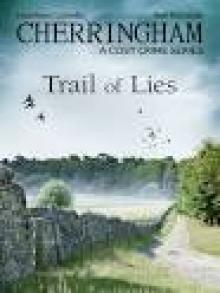 Cherringham--Trail of Lies
Cherringham--Trail of Lies The Gentleman Vanishes
The Gentleman Vanishes Mydworth Mysteries--Murder wore a Mask
Mydworth Mysteries--Murder wore a Mask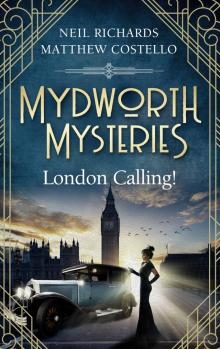 Mydworth Mysteries--London Calling!
Mydworth Mysteries--London Calling! Cherringham--Killing Time
Cherringham--Killing Time Mydworth Mysteries--The Wrong Man
Mydworth Mysteries--The Wrong Man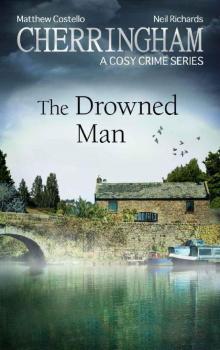 Cherringham - The Drowned Man
Cherringham - The Drowned Man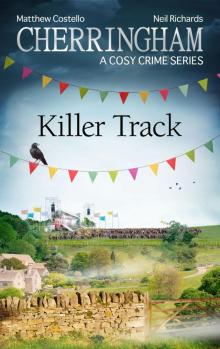 Cherringham--Killer Track
Cherringham--Killer Track Cherringham--The Secret of Brimley Manor
Cherringham--The Secret of Brimley Manor A Deadly Confession
A Deadly Confession Cherringham--Murder under the Sun
Cherringham--Murder under the Sun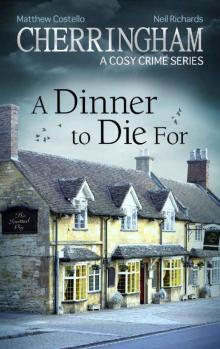 Cherringham - A Dinner to Die For
Cherringham - A Dinner to Die For Family
Family Cherringham--Death Trap
Cherringham--Death Trap Cherringham--The Curse of Mabb's Farm
Cherringham--The Curse of Mabb's Farm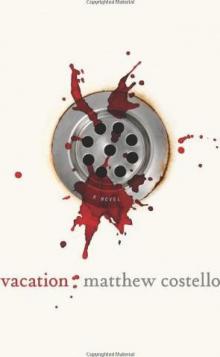 Vacation
Vacation Cherringham--A Bad Lie
Cherringham--A Bad Lie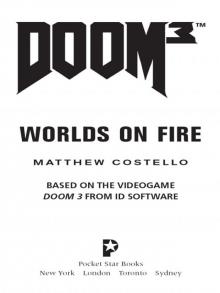 Doom 3™: Worlds on Fire
Doom 3™: Worlds on Fire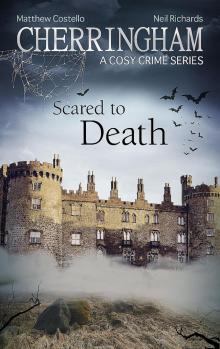 Cherringham--Scared to Death
Cherringham--Scared to Death Home
Home Dead in the Water
Dead in the Water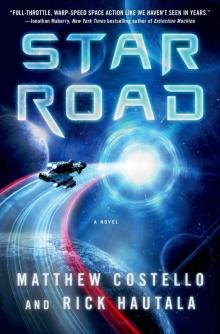 Star Road
Star Road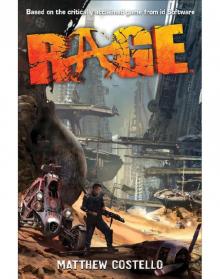 Rage
Rage Cherringham--A Fatal Fall
Cherringham--A Fatal Fall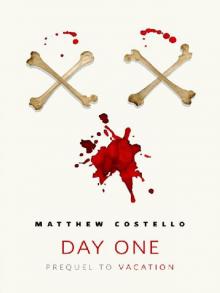 Jack Murphy_Prequel_Day One
Jack Murphy_Prequel_Day One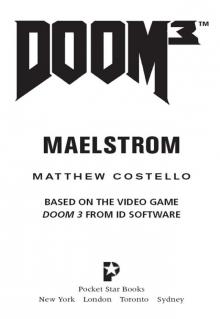 Doom 3™: Maelstrom
Doom 3™: Maelstrom